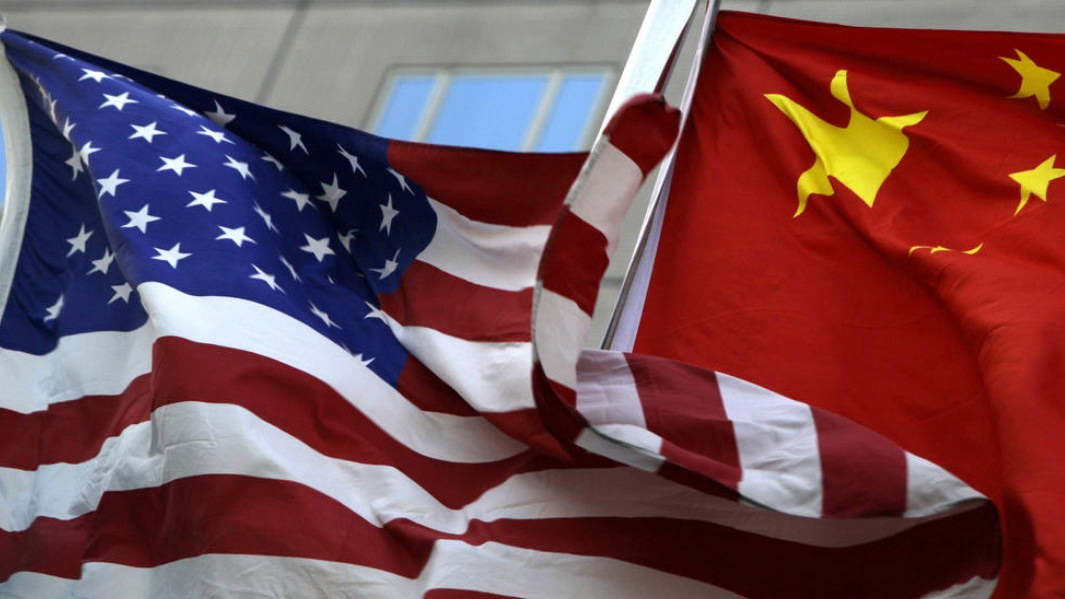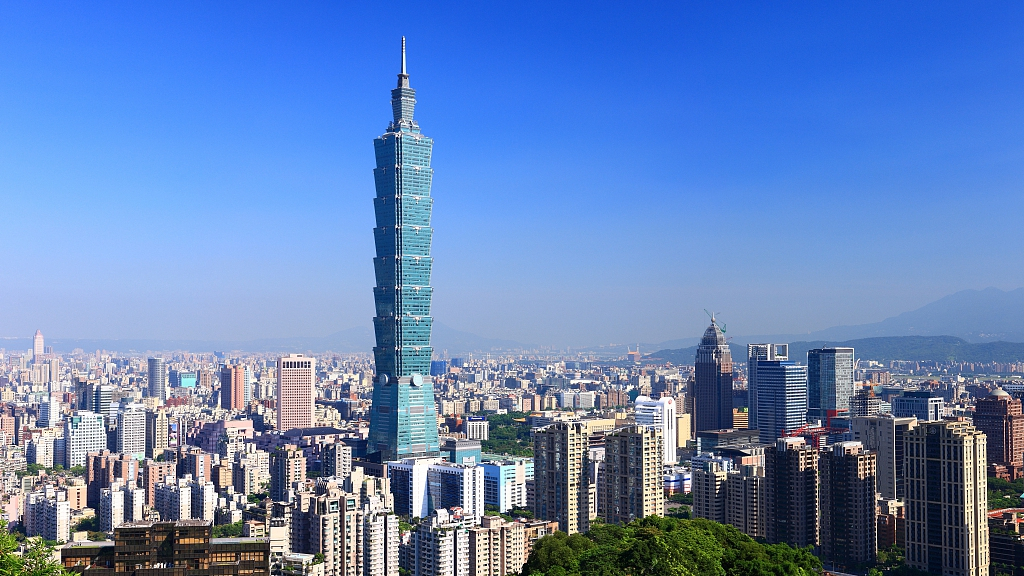
Editor's note: James Rae is a professor from California State University Sacramento. He was also a Fulbright Scholar at Beijing Foreign Studies University from 2017 to 2018. The article reflects the author's opinions, and not necessarily the views of CGTN.
In 1972, the United States formally stated its fealty to the one-China principle that Taiwan is part of China. Across the administrations of nine presidents from both political parties, the United States has maintained its commitment to that principle.
Indeed, the United States approved the granting of the United Nations Security Council seat to the People's Republic of China and formally established diplomatic relations, in so doing severing official diplomatic ties with Taiwan.
Since that seminal moment in 1979, reached by the consensus in American national security circles from Nixon and Ford to Carter, the number of countries recognizing the "Republic of China on Taiwan" has greatly dwindled.
Indeed, no major country in the world but a handful of tiny Pacific islands, several small Latin American countries, and the recently renamed African monarchy of Eswatini (formerly Swaziland) along with the Holy See recognizes Taiwan in that capacity.
So, it is rather ironic that the U.S. House of Representatives unanimously passed the alleged Taiwan Allies International Protection and Enhancement Initiative (TAIPEI) Act to promote the inclusion of Taiwan in international organizations and encourage those remaining countries to offer "diplomatic recognition" when the United States itself and nearly the whole of the rest of the world do not.
The bill, which will soon be harmonized in the Senate and signed by President Donald Trump, considers that "in certain cases as appropriate and in alignment with United States interests, increasing its economic, security, and diplomatic engagement with nations that have demonstrably strengthened, enhanced, or upgraded relations with Taiwan."
In essence, the United States argues 'if you are nice to Taiwan we will be nice to you.' This is clearly a desperate attempt to undo the progress made by China over the past several years where a handful of countries have switched their recognition away from Taiwan.
It also ironically runs counter to American policy and the official stance of the United States, which does not recognize the "government" on Taiwan.

The Taipei 101 skyscraper in Taipei, southeast China's Taiwan. /Xinhua
The Taipei 101 skyscraper in Taipei, southeast China's Taiwan. /Xinhua
Following on the so-called Taiwan Travel Act of 2018, one can see American foreign policy creeping away from the one-China principle as it promotes a growing strategic rivalry with China.
One might assume this is a particular prerogative of the Trump administration but based on the unanimity in the U.S. Congress toward these laws that threaten the strategic relationship, it seems likely to be part of a Joe Biden administration and perhaps another step in the aggressive stance adopted by the United States toward China's rapid economic modernization and development.
Once again, the short-sightedness of American foreign policy is evident, along with the lack of preparation for the intended and unintended consequences of such law.
Is the United States prepared to switch its recognition to Taiwan? Is the United States prepared to play an escalating game of dollar diplomacy to persuade these final countries to live in an imaginary world where China does not exist? Is the United States going to advocate for an "independent Taiwan" and manage the hostilities that would result?
Obviously, that is not the desired direction and playing games with the Taiwan issue is not fruitful, and it is a core sovereignty issue for China and not a plaything to score political points. All sides have long agreed to the peaceful resolution across the Taiwan Straits, all sides have pledged to follow the one-China principle.
The United States should not be meddling in this long-established consensus by bribing or blackmailing very weak states to do something Washington does not even do itself. Harmony on the Taiwan question will be enhanced when all states recognize the government of China is in Beijing, and then deal with bilateral and multilateral issues from that perspective of sovereign equality.
Let's not make Saint Vincent and the Grenadines a rope in a tug of war.
(If you want to contribute and have specific expertise, please contact us at opinions@cgtn.com.)